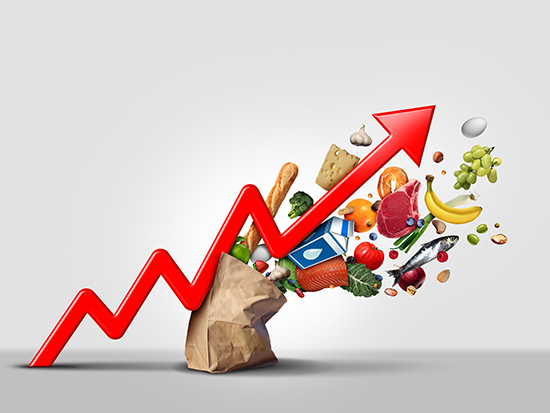 Whistleblowers in marketing channels can be useful in encouraging an efficient supply chain, which can lower production costs and slow down inflation.COVID-19 affected the global supply chain substantially, severely compromising the efficiency of the supply chain due to delays and disruptions. The effects continue to impact consumers and businesses, primarily in terms of rising inflation and increasing living costs.
Whistleblowers in marketing channels can be useful in encouraging an efficient supply chain, which can lower production costs and slow down inflation.COVID-19 affected the global supply chain substantially, severely compromising the efficiency of the supply chain due to delays and disruptions. The effects continue to impact consumers and businesses, primarily in terms of rising inflation and increasing living costs.
The University of Alabama at Birmingham’s Simon Sheng, Ph.D., professor in the Collat School of Business’ Department of Marketing, Industrial Distribution and Economics, is a marketing channels expert. His recent research, published in the Journal of Business Ethics, focuses on the role of distributor whistleblowers in deterring unethical behaviors in marketing channels.
According to Sheng, distributors’ wrongdoings eventually will hurt the efficiency of the supply chain, augmenting the current shortages. But distributor whistleblowing can help improve the supply chain and eventually help lower inflation.
What consumers can do
The current high inflation rate in the United States can be partially attributed to the rising cost of the supply chain because it accounts for 20 percent of the final price of products that consumers pay. According to Sheng, distribution whistleblowers can help lower this cost in the long term.
“Distributor whistleblowing provides an alternative mechanism for the distributor and regulative entities to identify misconduct in the marketing channels, preventing consumers from being hurt by wrongdoings or unethical behaviors in the distribution networks,” Sheng said.
For example, one of the major unethical practices that harms consumers is counterfeiting. Distributor whistleblowers can help contain the scale and impact of this unethical practice if they start reporting counterfeited products in the marketplace to the genuine manufacturer or the regulative agencies, Sheng says.
 Simon Sheng, Ph.D.
Simon Sheng, Ph.D.
Photography: Andrea MabryHow manufacturers can make an impact
Many executives have realized that supply chain turmoil could be the greatest threat to their companies’ growth and survival. Therefore, they are striving to increase the resilience of their global supply chain by re-allocating resources. Sheng encourages boosting whistleblower rewards as it is one way to increase supply chain efficiency.
Currently, manufacturers are opting for one of the two strategies between monitoring and incentivizing. Sheng’s research has found monitoring to be less effective as it “interferes with the autonomy of these individuals and signals distrust to distributors, decreasing their willingness to engage in whistleblowing.”
To mitigate that, Sheng’s research offers novel ways for manufacturers to encourage distributor whistleblowing, such as incentivizing the act.
“In contrast to manufacturer monitoring, incentives encourage distributor whistleblowing by offering positive aspirations and developing a self-enforcement agreement,” Sheng said. “Companies should consider building reward systems and laws to protect these whistleblowers from retaliation from wrongdoers in the distribution channel.”
Read Sheng’s paper, titled “Deterring Unethical Behaviors in Marketing Channels: The Role of Distributor Whistleblowing,” in the Journal of Business Ethics.